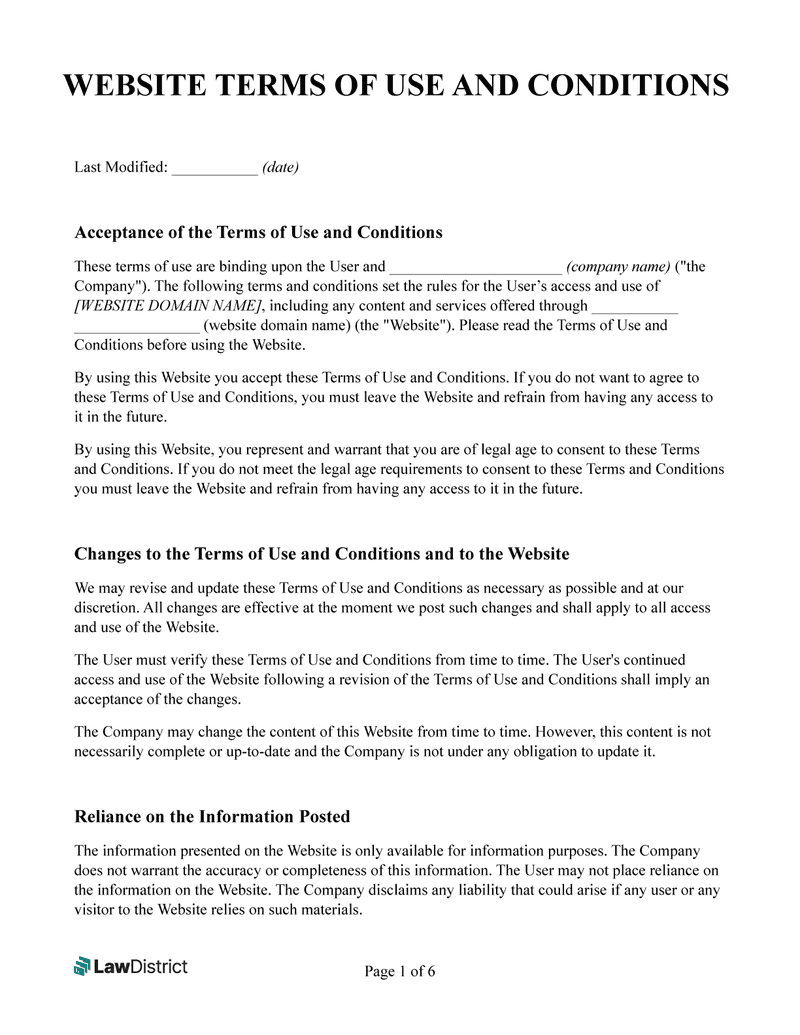There are different elements you should include in your document to ensure that your website runs without any serious problems.
The following is what you should include in your Terms and Conditions document.
Acceptance of terms and conditions
Create a section where the user must agree with the Website Terms and Conditions to be able to access the website.
If the user does not accept, they will not be allowed to use the website.
Intellectual property rights
Establish which material (music, images, etc.) is yours and how it can be used, if at all.
The content on the website must only be used for personal use and intellectual property is protected by copyright laws.
Guarantees and warranties
Mention any guarantees (or lack thereof) to replace or repair a product and how long the warranty lasts, and how the customer should proceed if they find a problem with the product.
Reliance on the information posted
Add a clause that frees you from any liability for any information that is found on the website. Mention that it is not the website’s responsibility for what happens to the user if they act based on the website’s information.
Indemnification
Mention that the website is not liable for any losses the user suffers because of their punishment due to any violations of the Terms and Agreements.
User Information
Establish that anything the user posts is subject to the website’s privacy policy.
Access to the website
Mention that the website has the right to modify or update the website at any moment. Establish that the company is not liable if a user cannot access the website at that time.
User Content
Include a section that states users will post on the website within comments, and forums, and the website is not liable for that content.
Mention that the content is also not confidential and the user’s content must comply with the Terms and Conditions.
Content Standards
Establish how users should behave on your website and mention punishments for any infractions they commit.
Governing law
Mention which state laws govern the website. Any conflict will be handled in the jurisdiction of the state you add in this section of the Terms and Conditions.
On a website, you can usually find the Terms and Conditions in a pop-up or a footer, and the user must accept them to access the site.
How to change the Terms and Conditions
You are within your rights to modify the Terms and Conditions on your website. The only thing you have to do is let your users know what you will change and when it will take place.
Some examples of changes to a website include:
- Adding new software
- Complying with the requirements of new laws
- Communicating to users that there will be new website functionalities
